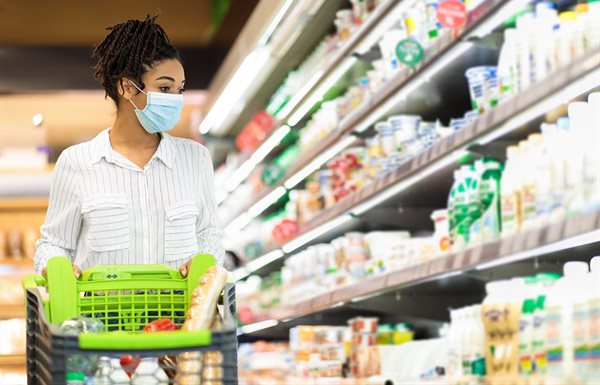
Top stories






More news

ESG & Sustainability
#AGES2026: How to back Africa's next-gen green and blue entrepreneurs















Logistics & Transport
#Budget2026: Road freight logistics and what it means for consumers


As a result, a whopping 78% of South African consumers say they have changed their purchase behaviour since the Covid-19 pandemic began, with no prospect of this returning to 2019 levels anytime soon.
These findings stem from a new NielsenIQ study Unlocking Consumption in 2021 that also identified a rapidly growing group of newly constrained consumers who represent 66% of South African shoppers as compared to the 46% global average. Interestingly, of the 15 countries surveyed, Thailand (73%), South Africa (66%), Turkey (65%), had the highest numbers of newly constrained consumers across the globe.
The newly constrained segment is just one of four local consumer groups who will shape spending patterns this year. These include Existing Constrained consumers who were watching what they spent prior to Covid-19 and have not changed this behaviour and the already mentioned Newly Constrained consumers who have experienced a worsening of their household income/financial situations and are consciously watching what they now spend.
In addition, 17% of consumers are categorised as Cautious Insulated spenders who have a limited income/financial situation impact but are watching what they spend a lot or much more.
There is some ‘light at the end of the tunnel’ in the form of Unrestricted Insulated consumers who have the same or even an improved financial situation and do not have to watch what they spend. Although they currently represent only 2% of consumers, their more unrestricted ability to spend has translated into demand for premium products and presents new opportunities for product innovation.
NielsenIQ Global Intelligence Unit executive director Ailsa Wingfield comments; “The four new groups we’ve identified demonstrate real constraint in consumers’ ability and/or desire to spend freely. Within this, the newly constrained and cautious insulated consumers represent a massive 84% of consumers who are scrutinising their budgets and changing their consumption behaviour based on the impact Covid-19 has had on their personal circumstances.”
However, despite the seemingly insurmountable challenges faced by large numbers of South African consumers, they are employing new coping mechanisms to manage household budgets including selecting products based on promotions irrespective of brand or actively seeking out private label options to save money. More than half of South Africa’s brand-loyal consumers also say they will stick to their preferred brand while 66% will only change brands if the regular price increases.
This means that brands will be under much more scrutiny as consumers weigh up which brand attributes really matter to them to justify a place in the basket, with a substantial 64% saying they will switch to the lowest priced option among their preferred brands and products to save money - a sure sign that brands will need to work hard to ensure they are catering for their new consumer needs within their portfolios.
Looking ahead, one of the many challenges of the Covid-19 era is that it is subject to sharp shifts in consumer behaviour many of which have never been seen before. For example, even though the pandemic-driven consumer behaviours of 2020 were largely predictable globally and unfolded in much the same way as the virus spread across countries; the extreme growth of FMCG in 2020 in many markets is not expected to continue this year, and growth will be harder to find.
The NielsenIQ study, therefore, concludes that there will be a continuation of the polarisation of spend borne out by the fact that close to half of local consumers say that if the economic situation worsened, they would spend less on groceries, whereas only 17% of consumers said they would spend more.
Wingfield elaborates; “The duress of Covid-19 drove spending on consumer goods to new levels in 2020. Extended lockdowns meant in-home consumption was over-indexing against pre-COVID conditions. The natural expectation as the world unravels from the disease is for a return to something resembling pre-Covid times; however, that is unlikely to be the case in the coming months.
“As a result, brands and retailers are again in uncharted territory in 2021 as the consumer of today is not the one they knew last year. Brands and retailers, therefore, need to understand who their consumers are today and find ways to meet their new needs to find growth in a challenging economic environment.”
Survey info: Conducted in December 2020-January 2021, NielsenIQ’s Customized Intelligence Business Unit surveyed more than 11,000 consumers across 15 countries, including Australia, Canada, France, Germany, India, Japan, Mexico, Russia, South Africa, Spain, Thailand, Turkey, UAE, UK and U.S.